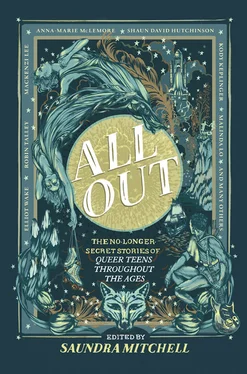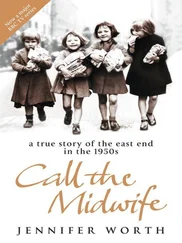“One day you will thank me for what I’ve saved you from,” Oropeza said.
I set my back teeth together. He considered me and everyone like me a child. Men like him thought they had more of God in their hearts than we did, as though they held it in the lightness of their skin, or, for a few of them, in their eyes as blue as the seas their ancestors had crossed to claim this land.
Oropeza lurched forward, clutching his chest as though it had cramped. And then his stomach, as though he’d had a portion of bad wine.
I stepped back.
The venom in me, carried in my family’s blood, was spilling out. It had built in me, spun and strengthened by my rage. Then it had flowed into the air between me and Oropeza until he was sick with it.
This was the poison of Las Rojas, the venom our rage could become.
I kept myself back, pressing my tongue behind my teeth to stop myself.
I could not let the poison in my blood make Oropeza sick. If he’d heard the stories about my family and realized they were more truth than superstition, he would have me dragged into the street and killed as a bruja.
One of Oropeza’s men showed me out. My steps led me over the polished tile, and then out into Oropeza’s front gardens.
Léon had stayed for me. He had kept himself here, caught between la Légion he’d deserted and this country that considered him an enemy. And he’d been taken for it.
He’d never had the stomach for la Légion. He’d told me the night I found him, once I’d given him enough water for him to speak and he’d come out of the fever enough to make sense with his words.
He’d only joined because it had given him a way out of Alsace. He’d been told that la Légion would never check on the name he’d been born with, the name that would give away more than he ever wanted anyone to know of the body he kept beneath his clothes. The chest he bound down. The shoulders and back he worked hard enough that they could take as much weight as any other man’s.
And la Légion hadn’t checked. They did not want to know. They preferred their légionnaires forget who they’d been.
He could take the fighting, and even the beatings they gave les légionnaires to harden their spirits. But he could not stand how his régiment let the men work out their rage on village women. How they killed brothers or husbands who protested.
Léon had spoken up enough that they considered it rebellion. So each night they beat him in a way they called les couleurs. Blood on one cheek, bruises on the other, the pale, untouched stripe of his nose and lips between. The colors of the French flag, meant to put the allegiance back in him.
The night I found Léon, he’d worn those colors. It was the first time he’d tried running, and they’d caught him. So they’d tied him to one of the acacia trees that bloomed yellow each spring. His back against the thin trunk. His wrists and ankles bound behind it so he could not stand. All he could do was kneel.
They had told him that they may or may not come back for him, and if they did, it would be because they were curious if the wolves had eaten him.
That night, una vieja from our village had sent me into the woods. She asked me to bring her an oyamel branch from the fir tree she always held a little of as she prayed. I only noticed Léon because, at the sound of brush crackling under my feet, he lifted his head. His forehead shone with sweat. And through his fever, the thing I would later come to know as his charm seemed a kind of delirium, a madness. He’d mumbled a few words in French before saying, “If I’d known a beautiful woman would be calling on me, I would have made myself presentable.”
I unbound him and brought him home not because I was kind. I brought him home, holding him up as his eyes opened and shut, because if it had not been for the mercy of the other families in our village, my abuela would not have had a proper burial. I could not have done it myself. My heart was so weighted with losing her I was sure it would pull me into whatever hollow in the ground I made for her.
So I brought home this tall, underfed boy with hair so blond the moon made it look white. I boiled water and made pozole, to show God I was grateful, and that there was mercy left in me.
But there was no mercy in men like Oropeza, and Ariel, and Quintanar.
I had failed Léon. I had lost him. And now, at dusk, when a shot rang through the air, I screamed into the sound.
I screamed into the wind bringing me the rattling laugh of the men who killed Léon. I sobbed into the silhouettes of mesquite and acacia, and into the darkening blue of the sky.
Still screaming, I crossed myself, saying a prayer for the soul of Léon Bellamy.
Léon, the boy who made me laugh when he tripped over rolling his r’s. Léon, who had startled the village with his eyes, so pale gray that at night they looked silver, and his hair, light as bleached linen. Léon, who had won them over with his wonder about armadillos, how the animal rolled itself into a ball of plate armor.
Léon, the boy who had put his mouth to my ear and told me the brown of my skin made him think of wild deer roaming the woods where he was born.
Even in this moment, opening under me like a break in the earth, Abuela would have told me to find some small thing to thank God for. There was one, just one, I could get my fingers around.
No one, not la Légion, not Oropeza, ever knew Léon as anything but a boy. They did not know that his mother had christened him with a girl’s name. They did not know that he had joined la Légion less out of patriotism and more for the chance to live as who he was. If they had, Oropeza would have thrown it at me, mocked me for it. He would have made clear what he thought of us, Léon living among the other soldiers with his bound-down chest, me lifting my chin in the street as though I were the equal of the powder-pale women in their escaramuza dresses.
But even this small mercy broke in me. All of it broke.
First I had lost my grandmother, made sick from her rage over what this war had taken. She always warned me not to let my rage kill me, but in the end her own had spread its venom through her.
They said this war was over, even as women wept over their stoves and into their sewing. Even now when an Alsatian boy had just been blindfolded and shot.
My rage felt so hot it would singe away my smallest veins. There were so many empty places where everything I had lost once fit. Now there were only the dustless, unfaded patches where all I loved had been.
There was nothing left. Yes, there were the women who had loved me and my abuela; my abuela had fed them when they were sick and prayed over them when they bore children. There were even the ones who had taken to Léon like he was a stray. But now they only reminded me of those empty places.
I found the few clothes of my grandfather’s that Abuela had kept, the ones he’d left behind. He had dared to hit her once, and her rage had struck him back so quickly, felling him, he called her a witch, yelling, “Bruja,” as he fled our village.
I hemmed his trousers with quick, rough stitches. I stuffed his boots with scrap cloth so they would fit. I had the small, wide feet of my grandmother, the edges rough from years of running without shoes.
Like a silent prayer, I gave her my gratitude. Abuela had wanted me to play outside barefoot as much as I could stand, so that if ever I could not afford shoes, my feet could go without them. Now I understood what my grandmother had wanted, for me to keep my heart soft but the edges of me hard enough to survive the world as it was.
My grandfather’s poncho, I plunged into red dye, the rough agave taking it fast.
At night, the color wouldn’t show. But I would feel it against my skin.
Читать дальше












